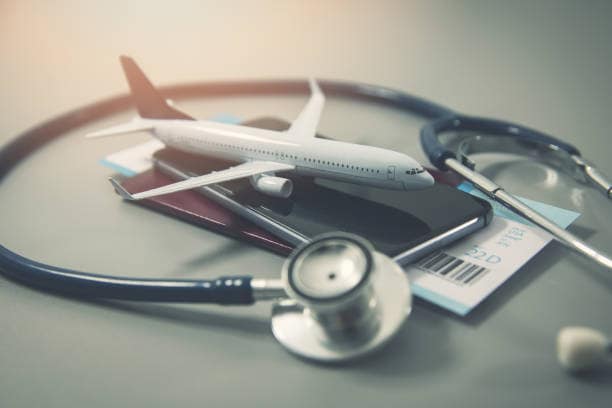The healthcare aspect has undergone a remarkable transformation, with medical travel emerging as a popular option for patients across the globe. Once seen as a last resort for those unable to access certain treatments domestically, traveling abroad for medical care is now a proactive choice for many. Patients are motivated by factors such as cost savings, access to advanced technology, shorter wait times, and specialized expertise. This growing trend has reshaped the global healthcare system and the way individuals view wellness, recovery, and quality of care. Understanding why medical travel is rising and its implications reveals how it has become a defining feature of modern healthcare.
The Global Drivers Behind Medical Travel
Several factors contribute to the surge in medical travel, chief among them being accessibility and affordability. In many countries, medical procedures come with prohibitively high costs, pushing patients to look elsewhere for quality care at a fraction of the price. Treatments like orthopedic surgery or cosmetic enhancements can be significantly less expensive in regions such as Southeast Asia or Latin America, without sacrificing quality. Alongside cost, the globalization of healthcare has made it easier for patients to connect with international hospitals and specialists. Online platforms, accreditation systems, and transparent patient reviews have broken down barriers, making it simpler to research and arrange treatment abroad.
Access to Advanced Treatments and Expertise
Patients often seek medical travel to access treatments and expertise that may not be readily available in their home country. Specialized procedures, cutting-edge technology, and highly trained professionals can make a significant difference in outcomes for complex or rare conditions. For example, someone might choose to consult a Texas dentist known for advanced dental reconstruction techniques that are less common elsewhere. By traveling to providers with niche expertise, patients can benefit from innovative approaches and years of focused experience. This access improves the quality of care and provides peace of mind, knowing they are receiving treatment from professionals who are leaders in their field.
Reduced Wait Times and Greater Efficiency
In many healthcare systems, long waiting lists are a source of frustration and can sometimes jeopardize health outcomes. Patients in countries with nationalized healthcare often face significant delays for elective surgeries, diagnostic tests, or specialized treatments. Medical travel offers an appealing alternative, with patients able to schedule procedures much more quickly abroad. Private hospitals catering to international patients prioritize efficiency, often providing streamlined processes from consultation to post-operative care. This reduced waiting time can make a significant difference for conditions where early intervention can improve long-term outcomes. The ability to receive timely treatment is one of the strongest motivators driving patients beyond their borders.
Economic and Cultural Impacts of Medical Travel
The rise of medical travel has far-reaching economic and cultural implications. Host countries benefit enormously, with medical tourism contributing billions of dollars annually to local economies. This has spurred investment in state-of-the-art facilities, international accreditations, and medical training programs. Beyond economics, medical travel fosters cultural exchange. Patients often combine their treatment with tourism, leading to the growth of wellness resorts and recovery-friendly accommodations. Families accompanying patients engage with local culture, creating a unique blend of healthcare and travel experiences. This dual impact enhances the appeal of medical travel and contributes to the rapid growth of healthcare hubs in popular destinations.
Challenges and Ethical Considerations
Despite its benefits, medical travel is not without challenges. One key concern is continuity of care. Patients often struggle to maintain seamless communication between foreign providers and their local healthcare systems once they return home. Complications after procedures can pose risks if follow-up care is not coordinated effectively. Ethical concerns arise, such as the potential for prioritizing international patients over locals in host countries or the exploitation of regulatory loopholes in less-strict healthcare environments. Patients must navigate potential language barriers, varying legal protections, and differences in medical standards. These challenges highlight the need for careful planning and transparent international healthcare partnerships.
The Future of Medical Travel
As globalization continues, the medical travel industry is expected to expand, shaped by advancements in technology and changing patient expectations. Telemedicine will likely play a key role, allowing patients to consult with foreign doctors before traveling and maintain continuity of care afterward. Insurance providers are beginning to recognize the value of covering international treatments, which could make medical travel more accessible to broader populations. At the same time, governments and accreditation bodies are working to establish stricter guidelines to ensure safety and ethical practices. With its blend of affordability, accessibility, and global expertise, medical travel is poised to remain a powerful force in reshaping the future of healthcare.
The rise of medical travel signifies a global shift in how people approach healthcare decisions. Patients are increasingly willing to cross borders in pursuit of affordability, expertise, and efficiency, and this movement has significant implications for local and international health systems. While challenges and ethical considerations remain, the trajectory points toward a future where healthcare is not confined by geography. Medical travel, when approached thoughtfully, offers patients the opportunity to prioritize their well-being while exploring the benefits of a globalized medical market.
Published by HOLR Magazine.




